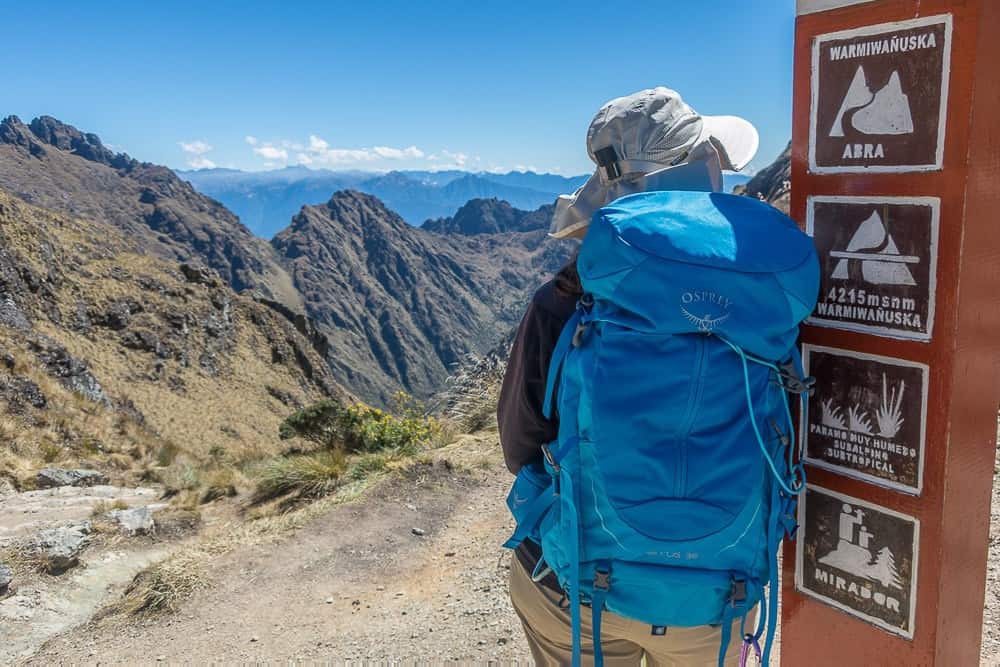Whether you’re a seasoned hiker or a newbie, everyone can use some trekking tips for hiking in Peru to make sure you have the best possible experience on the trail.
On this page, we’ve outlined some of our favorite Inca Trail trekking tips – helpful no matter what trek you do!

It’s not a race. Most of our trek itineraries have adequate time built in for you to take it easy along the trail. We also find it is more enjoyable to stop and rest frequently, admiring the landscapes than to arrive at camp early and sit in your tent!
We recommend you spend 3 days at high altitude before departing, 2 days at a minimum. Even if you’ve been at altitude before, the next time may affect you differently. Read more about Altitude Sickness & Acclimatization.
Hit the gym. Do some day hikes at home before you leave, beginning with shorter, 1 hour hikes, and working your way up to as much as 15km per day. Include uphill walks, or even better, try to hike in the mountains if you live in a mountainous area. If you decide to embark on a rigorous fitness program, we recommend doing so under the supervision of a qualified medical or fitness professional. Any training regimen you undergo should be tailored to you according to your current fitness level and prior experience. Our general advice: the fitter you are, the easier the hike will be!
This is an especially important trekking tip when going uphill, or at the higher altitudes along the route.
If you’ve just purchased a new pair, we recommend two weeks of frequent wear to make sure your feet are totally accustomed to them and that your hike will be comfortable.
No one wants to hike with blisters! Our medical kit is well-stocked, but if you have a preferred blister treatment, such as moleskin or ‘second skin’, it would be good for you to bring your own.
They are light and easy to carry and can warm your toes at night as well as help out in the case of ill-fitting shoes. Not to mention you’ll be thankful for them if your feet happen to get wet on the trail!
Walking sticks help with balance going downhill and resting walking uphill. If you’d like to use a walking stick and don’t already have your own, you can purchase colorful sticks in Ollantaytambo, or rent them from us. Note: Walking sticks cannot be taken into Machu Picchu!
We provide snacks for the trail, but it never hurts to have a little extra on hand. Sweets in particular give you energy and seem to take your mind off the challenge of steep passes!
Mingle with the locals and try an age-old tradition that has kept Andean people healthy and strong for centuries. It’s an acquired taste, but it can give you that little boost you need to get over the pass.
Always good to have on hand on any trek, sunglasses are a necessity on the Vilcabamba and Ausangate routes where there is a risk of snow blindness.
Check out our blog for things you can do to be a more responsible tourist while on holiday. Or, ask for a copy of our Traveler’s Code of Conduct for more tips on what you can do to promote responsible tourism during your trek.